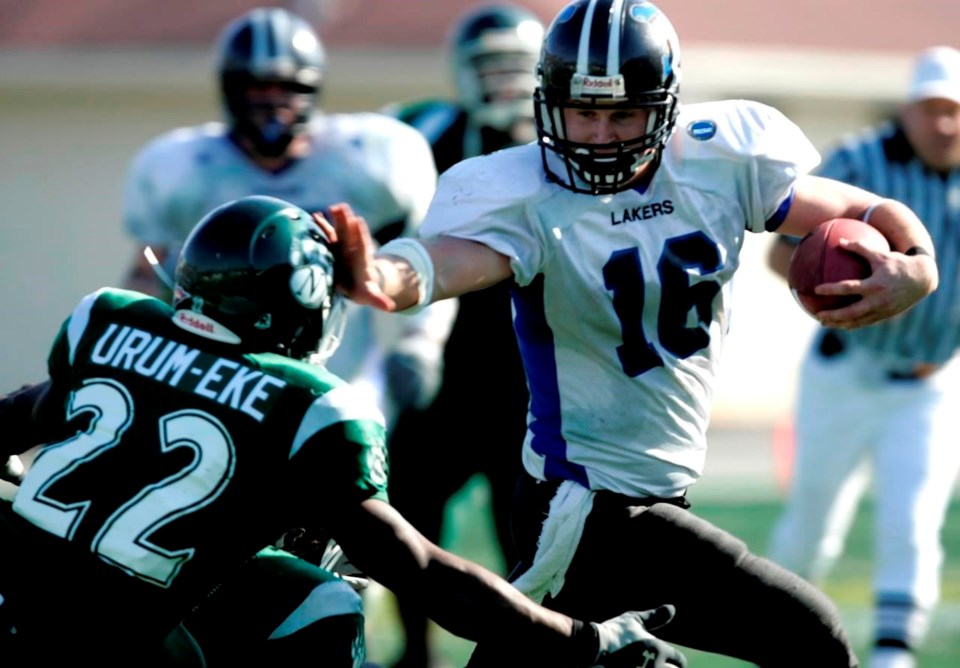INDIANAPOLIS (AP) — An Indiana jury has found the NCAA not liable in the death of a former Grand Valley State quarterback whose widow accused the college sports governing body of failing to warn college athletes about the risks of head injuries while playing football.
A Marion County jury agreed Wednesday with the NCAA’s arguments that Cullen Finnerty’s death did not result from a concussion he suffered while playing for the Michigan college or smaller blows to the head during his playing days, but from other health problems and addictions, ESPN reported.
Finnerty won three Division II national championships as the starting quarterback for Grand Valley State in the early 2000s. He died in May 2013 at age 30 after going missing while on vacation with his wife’s family.
An autopsy found that chronic traumatic encephalopathy, or CTE — a disease caused by concussions and repeated blows to the head — was a contributing factor in Finnerty's death.
His widow, Jennifer Finnerty, sued the Indianapolis-based NCAA, arguing that the association did not properly protect college athletes and warn them of the risks of head injuries while playing football.
Following a three-week trial that included testimony from outgoing NCAA president Mark Emmert and several medical experts, the jury agreed with the NCAA's arguments and found that it was not responsible for Cullen Finnerty's death.
The NCAA has maintained for years that it is not legally responsible for the health and safety of college athletes.
“The Association was not negligent, and the lawsuit was not supported by medical science linking Mr. Finnerty’s death to college football,” NCAA general counsel Scott Bearby said Wednesday in a statement. “We express our deepest sympathies to Mr. Finnerty’s family and friends.”
A message seeking comment on the verdict was left Thursday by The Associated Press for Jennifer Finnerty’s attorney, Robert Dassow.
In November, a Los Angeles jury rejected a lawsuit seeking $55 million filed by Alana Gee, the widow of former USC linebacker Matthew Gee. She argued that the NCAA failed to protect him from repeated head trauma that led to his death.
The NCAA remains a defendant in dozens of similar cases that argue it should bear some responsibility for the long-term health problems associated with head injuries athletes suffer while playing for their schools, ESPN reported.
The Associated Press



